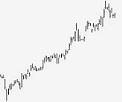|
Understanding Options and
Futures -
|
|
You often see the phrase 'options and futures', as if the two were financial Siamese twins. But, though
these two instruments are similar, there are important differences the savvy investor should keep in mind.
Both are so-called derivatives, since they have no independent worth as an asset, but derive their value from the instrument they are related to.
However, there is an essential difference between the pair. Both are contracts binding two parties, but the terms of that contract define the difference.
A futures contract gives its buyer the obligation to purchase the underlying asset and the seller to sell (and deliver) it at a preset date. (If the futures holder liquidates his position prior to expiration, the delivery clause is voided, obviously.)
By contrast, an options contract, whether a call (buy an asset) or put (sell an asset), grants the holder the right - but not the obligation - to exercise the option. The holder is entitled to simply let the option expire without investing further.
Investors can enter futures contracts without inputing any funds (ignoring any commission), but an option always carries a cost - the 'premium'.
(Note: This is only partially accurate since, in practice, futures contract buyers typically put down a deposit
(called a margin) of around 5% to 10% of the price of the underlying asset. But the futures contract itself doesn't cost anything but a small commission.)
Futures contracts typically represent a larger investment in the underlying asset. (At least from the standpoint of a legal obligation, if not actual money laid out.)
|
The contract requires the buyer to either purchase the 'goods' by the deadline (which
is rare), or sell the contract to another party. So, the financial obligation is, at least in principle, potentially very large.
The risk in 'buying' options is therefore lower, with the amount you can potentially
lose limited to the premium cost. Selling options though is a
whole other matter and the risks can be great if you get it wrong.
Nevertheless, few traders actually take delivery of several tons of wheat or a few thousand barrels of oil.
These contracts typically are actively traded until just before settlement time, at which time a buyer - one appropriate to that commodity - purchases the actual goods and re-sells them.
(Of course, futures contracts exist on non-physical 'goods' as well - such as index futures, bond futures, even futures on options!)
Similarly, only a small percentage of options traders actually take delivery of the underlying shares of stock, bond certificates, commodity or other instrument.
Some do, such as employees of companies granting options as part of employment compensation packages. And a small percentage of a very large number is still a substantial number of
individuals.
There are also important differences in the way profits (or losses) are realized from the two contracts.
A call option, for example, that is 'in the money' can be purchased and exercised immediately. 'In the money' means the 'strike price' - the price at which the underlying asset must be bought or sold via the option - is lower than the current market price.
For example, in April a June 17 call on Microsoft might have a strike price of $25, with a current market price of $27 per share.
Assuming the cost of the option (and commissions) averages less than $2 per share the investor can realize an immediate profit by selling the call or exercising the option.
Futures gains, on the other hand, are automatically 'marked to market' daily. I.E. the any change in the value of the position is adjusted in the accounts of the contracting parties at the end of every trading day.
Like stock prices, of course, the gain or loss is 'only on paper'. Unlike stocks however, that 'paper loss' can become very real when the contract expires and the holder is forced to liquidate.
Both instruments carry risk, but are valuable for the leverage they offer - the ability to control more funds than you invest.
For most people, options are the way to go as your risk is limited to the premium paid. However, you can still lose plenty of money if you don't know what you are doing.
And if you'd like to cut out all the hype and B.S. about learning to trade options and learn EXACTLY how to do it right from an expert, check out The Options University.
Your membership includes everything you need to start trading options profitably TODAY! Visit The Options University today...
Visit Our Premium Partner
| Are you ever worried you could lose money on a bad investment? There is a simple way to eliminate this feeling — it's with knowledge. Stock Trading Experts will show you how to profit from your investments |
Click
Here To Return To The Options Information Home Page
The options trading and technical analysis information shared on this website is for educational purposes only and is not an invitation to buy or sell securities. While everything here is believed to be accurate, it should not be considered solely reliable for use in making actual investment decisions. Trading options is a risky business and you can lose more than your original capital. Always consult a licensed broker or adviser before trading the market.
Brought To You By Hobby And Lifestyle. Your Complete Guide To Hobbies, Pastimes And Getting The Most Out Of Life

